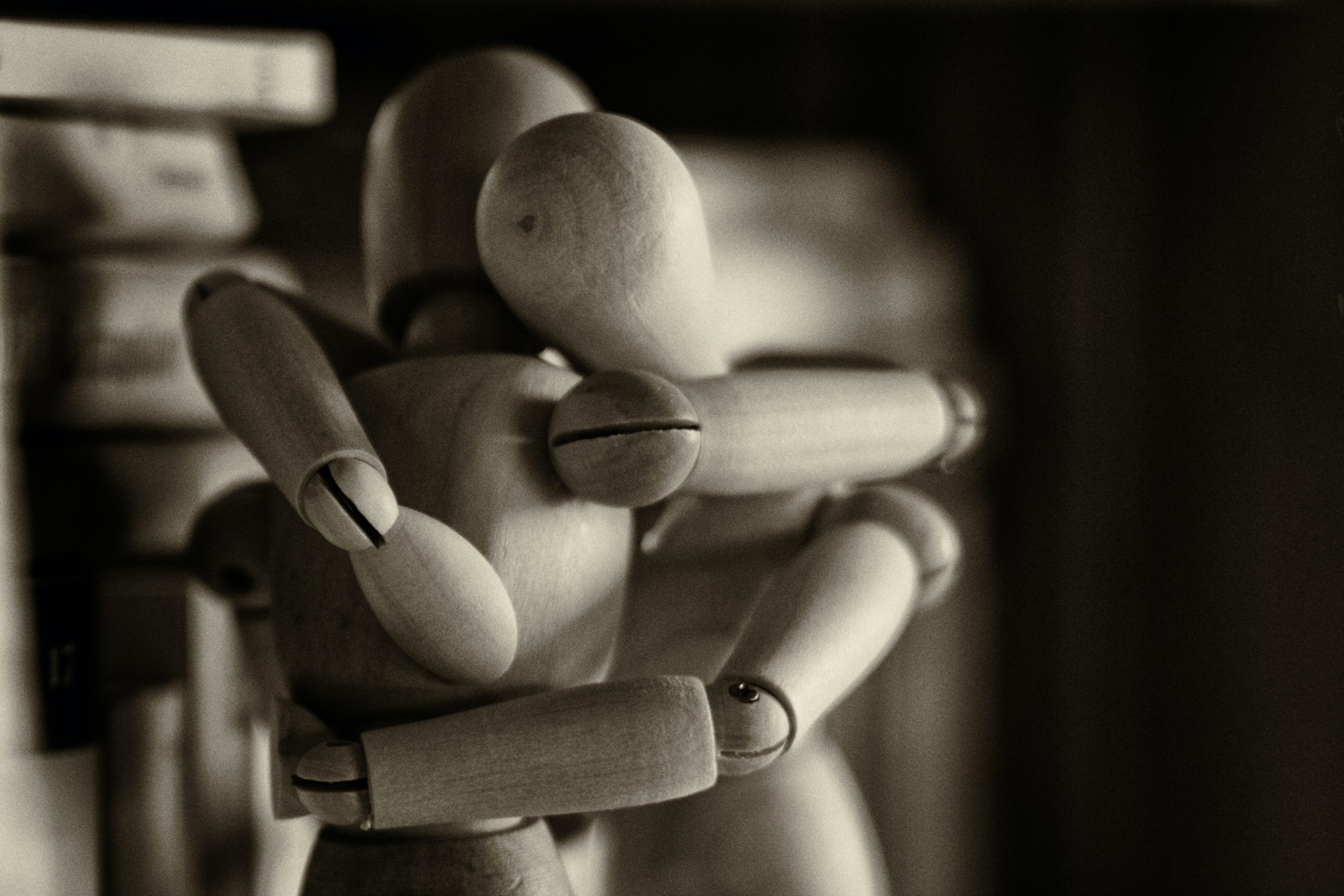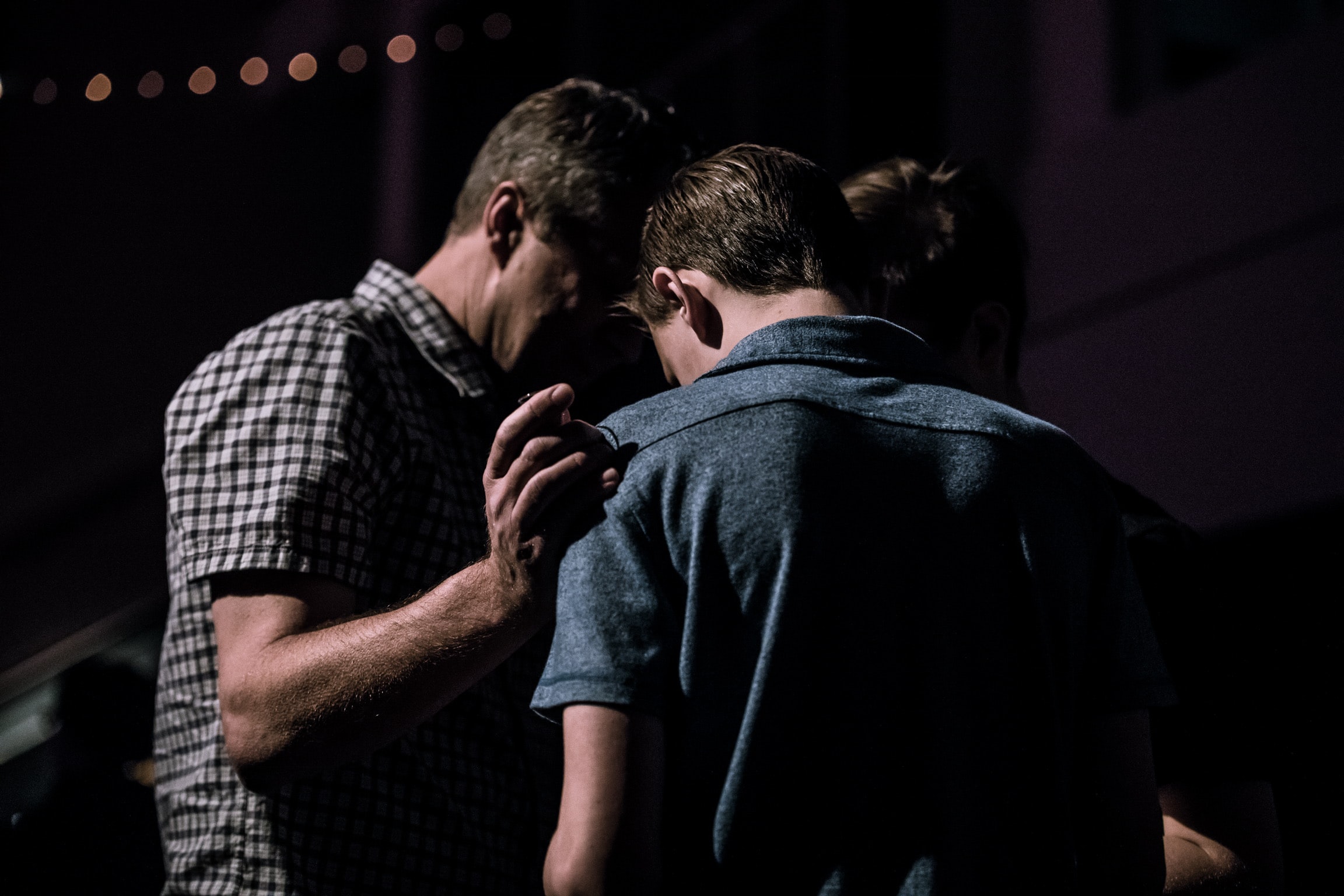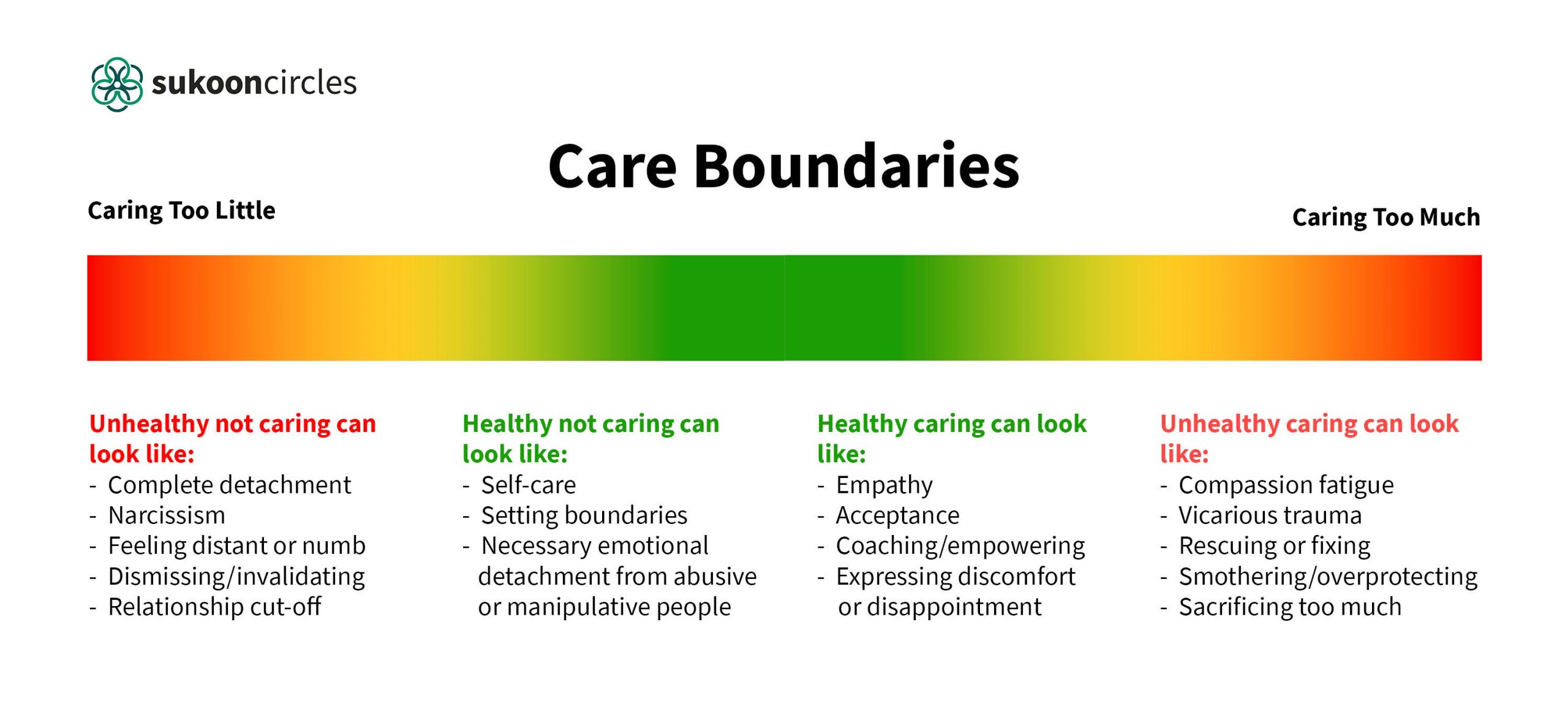#Life
Empathy And Its Boundaries: Caring vs. Carrying
Published
By
Anika Munshi
Ever heard the saying “when you’re hurt, I’m hurt”? No doubt the person saying this means well, however, it reinforces poor boundaries and misses the point of empathy entirely. We are often mistakenly taught that to care for others means bearing their burden, absorbing their feelings, rescuing them from their pain, or fixing their personality. But none of these constitute empathy.
Allah 

Keep supporting MuslimMatters for the sake of Allah
Alhamdulillah, we're at over 850 supporters. Help us get to 900 supporters this month. All it takes is a small gift from a reader like you to keep us going, for just $2 / month.
The Prophet (SAW) has taught us the best of deeds are those that done consistently, even if they are small. Click here to support MuslimMatters with a monthly donation of $2 per month. Set it and collect blessings from Allah (swt) for the khayr you're supporting without thinking about it.
“Say, ‘O People of the Book! Do not go to extremes in your faith beyond the truth, nor follow the vain desires of those who went astray before ˹you˺. They misled many and strayed from the Right Way.’” [Surah Al-Mā’idah: 5;77]
He 
“..and they are truly extreme in their love of ˹worldly˺ gains.” [Surah Al-`Ādiyāt: 100;8]
As a Muslim therapist, I often see individuals who define themselves or others by extremes as those who care too much (the selfless empath), or those who care too little (the selfish narcissist). The truth is, when we experience reality in black and white, we neglect seeing the full spectrum based on reality, and therefore live lives out of balance. We care inappropriately and out of moderation, and that harms our well-being and our relationships.
When our loved ones face a challenge or a difficult situation, they typically aren’t looking for a magic response or quick solution. They may be looking for someone who understands their feelings and helps them feel like they aren’t alone in solving the problem. They are looking for connection, and that’s what empathy is all about.
What is Empathy?

I like to look at empathy as if we are taking a small bite of another person’s feeling, not an entire truckload, and chewing on it to see if we remember its taste, identifying it, and sharing our experience with another. In essence: empathy is presence, “It is being in the present moment with another human being feeling into their experience.”1https://whitneyhess.com/
There are two main types of empathy:
- Cognitive empathy. This a type of empathy that requires taking the perspective of another person as an attempt to relate to them.2Ratka A. Empathy and the development of affective skills. Am J Pharm Educ. 2018;82(10):7192. doi:10.5688/ajpe7192 With cognitive empathy, you are trying to place yourself in someone else’s situation to gain a better understanding of their experience.
- Emotional empathy. This however, requires us to feel how the other person is feeling. For example, you feel happy when your partner is happy. Emotional empathy3Hodges SD, Myers MW. Empathy. In: Baumeister RF, Vohs KD. Encyclopedia of Social Psychology. Thousand Oaks, CA: Sage Publishing; 2007 doi:10.4135/9781412956253.n179 is when we:
- Feel the same emotion as the other person
- Feel our own distress in response to their pain
- Feel compassion toward the other person
Therefore, a person who practices emotional empathy is more likely to not just relate, but help another person in need.
What Empathy IS NOT
– Empathy is not carrying a burden.
Empathy is often misunderstood as carrying the emotional burdens of others. Many people believe that caring for others requires us to feel all of another’s emotions, and merge with that person’s experience (which is impossible because we can never share the same exact experiences at the same time). Empathy is more like saying “It seems you’re hurt by this”.
– Empathy is not rescuing someone from their experience.
“If I could, I would fix it for you”. We often believe that caring means rescuing another person from a problem. When we do this we rob others of the opportunity to feel a necessary discomfort required to learn and grow. When a person is allowed to experience discomfort, they are given the opportunity to consciously choose better choices. Repeatedly trying to rescue someone from their uncomfortable feelings prevents the progression towards acceptance, healthy coping, and moving on that are required to fully feel an experience.
Also, rescuing someone instead of allowing them to experience natural consequences is a sign of poor boundary-setting. Empathy is allowing others the full and complete exploration of thoughts, feelings, and behaviors without the intent to end the process quickly simply because we cannot tolerate others’ pain. Empathy requires patience, and for us to examine our own discomfort as we listen to the other person.
Most importantly, empathy is not about sharing the best advice and expecting others to do as we say or threatening rejection or abandonment. Habitual rescue attempts can teach long-term insecurity and unhealthy dependency in relationships. It conveys the message that they are helpless and incompetent and cannot do things on their own, and ultimately dealing with their own feelings is not their responsibility.
– Empathy is not minimizing someone’s experience.
Researcher Bréne Brown states that no empathic response begins with ‘at least’. For example, if a friend shares that she is having marital problems, you may feel tempted to highlight the good in the situation instead of giving her the space to share her feelings and experiences. (At least he prays! At least he doesn’t beat you!)
In empathy, it is very important to allow a person to go through the natural process of grief without rushing to remind them to be grateful or see their blessings. When we do this, we invalidate a person’s experience and shame them for having feelings about their problem. (“If I were you, I would feel the same way”, “I can see that you’re in a tough situation”)
There is a time and place for positive statements and spiritual guidance, however, it is essential to remember to first listen, not add on “be patient/be strong/ don’t worry” or minimize (“at least…”). It is not the time to expect them to forgive or accept quickly to allay our own discomfort, instead forgiveness and acceptance come naturally after the process of feeling through a problem.
Overall, empathy is not about absorbing or carrying the load of others, rescuing or fixing what we think is broken, or minimizing or spiritually invalidating a person’s experience just because it brings us comfort. Empathy is about staying still inside a moment, showing that we care for another, and that we accept their humanness while letting them fully share their experience.
The Need for Care Boundaries
As a counselor who listens to people’s struggles every day, I know how important it is to have boundaries, or acknowledge and communicate my personal limits to preserve my well-being. Many people ask me if I am burdened by the struggles of others, and to them, I talk about the importance of self-care and care boundaries.
To illustrate this, I have designed a graphic that explains the limits of empathy or care.
The Unhealthy Extremes
– Unhealthy Caring
Unhealthy caring can look like absorbing others’ emotions like a sponge until we feel exhausted or numb. When we care too much, we can experience vicarious trauma, or feel as if we are going through the struggles of the people that we care about. For example, if a friend reveals that she was sexually assaulted in the past, we may feel as if we have gone through the same experience.
Caring too much can lead us to rescue others from their negative feelings and fix their problems which can feel smothering or controlling. Repeated rescuing can create an unhealthy dependency and we teach others that they are incapable of taking care of themselves. Caring too much about what others think can also mean people-pleasing. In trying too hard to impress or cater to others’ we can neglect our own needs and feelings.
– Unhealthy Not Caring
On the other hand, unhealthy not caring can look like being completely detached from others both emotionally and physically. Sometimes this is the result of caring too much over extended periods. We can become self-absorbed, distant or dismissive in relationships, and appear to others as selfish or narcissistic. Some may cut off relationships as an unhealthy way of coping to protect themselves from feeling judged, rejected, or abandoned.
The Healthy Middle
– Healthy Caring
Healthy caring is when we can offer the appropriate level of empathy. It means we care enough to sometimes loosen our grip on those we care about and accept that change comes on their own terms.
Instead of controlling others, we coach them, empower them, or act by example. This doesn’t mean that we don’t express our discomfort or disappointment. Letting the other person know that we are bothered by their behavior and then giving them the choice to choose better behaviors can lead to mutual satisfaction. Healthy caring is learning to have tawakkul by doing our part by tying the camel, and then trusting that Allah 
– Healthy Not Caring
Healthy not caring looks like taking care of ourselves and being aware of our human capacity (our time, energy, abilities, preferences, comfort, values, and responsibilities). It is being able to clearly communicate to others our needs, wants, feelings, and limits, and respectfully setting the terms of the relationship.
In some situations, emotional detachment is a necessary self-protection, especially when dealing with abusive, controlling, or manipulative people. Learning to emotionally detach from matters that are outside of our control can be vital in preserving our mental health.
Lastly, healthy not caring allows others to step up and be the force of change in their own lives. It gives them the space to make choices for themselves as well as the freedom to make mistakes and experience necessary consequences.
When we think and feel moderately, we experience the world around us moderately, and we follow the balanced and middle path that Allah 
Related reading:
– Sharing Grief: A 10 Point Primer On Condolence
– Grief and Giving Survivors Meaning After Attacks
Keep supporting MuslimMatters for the sake of Allah
Alhamdulillah, we're at over 850 supporters. Help us get to 900 supporters this month. All it takes is a small gift from a reader like you to keep us going, for just $2 / month.
The Prophet (SAW) has taught us the best of deeds are those that done consistently, even if they are small. Click here to support MuslimMatters with a monthly donation of $2 per month. Set it and collect blessings from Allah (swt) for the khayr you're supporting without thinking about it.
Anika Munshi is a Licensed Professional Counselor and is passionate about working with Muslims and the various challenges they face living in the West all within a traditional Islamic paradigm. Anika believes that God is at the center of our existence, and healing requires aligning our heart and mind towards God. Anika also works as a graphic designer serving Muslim businesses and organizations and incorporates traditional Islamic aesthetics to create modern forms of visual dawah.


Nationalism And Its Kurdish Discontents [Part II of II]: Kurds And Turkiye After Ottoman Rule

Nationalism And Its Kurdish Discontents [Part I of II]: Kurds In An Ottoman Dusk

Moonshot [Part 10] – The Marco Polo

Moonshot [Part 9] – A Religion For Real Life

Genocidal Israel Escalates With Assault On Iran

Moonshot [Part 10] – The Marco Polo

Moonshot [Part 9] – A Religion For Real Life

Moonshot [Part 8] – The Namer’s House

Moonshot [Part 7] – The Abyss Stares Back

[Podcast] A Riba-Free Future With A Continuous Charity | Faizan Syed

[Dhul Hijjah Series] Calling Upon the Divine: The Art of Du’a (Part 1)

IOK Ramadan 2025: Four Steps | Sh Zaid Khan

IOK Ramadan 2025: Do Your Best | Sh Zaid Khan

IOK Ramadan 2025: Giving Preference to Others | Sh Zaid Khan






Emmi
September 12, 2022 at 2:28 AM
Boundaries do not indicate that you lack sympathy and empathy for others. They exist to control how much influence other people have over you. It’s possible to set boundaries while still being present for the people we care about, paying attention to what they have to say, and responding thoughtfully to their concerns.
sahir
September 12, 2022 at 2:32 AM
It’s a common misconception that empathy entails bearing others’ emotional problems. Many individuals think that in order to truly care for someone, we must experience all of their feelings and become that person.
khurram
September 12, 2022 at 2:35 AM
When we care too much, we may attempt to save others from their unhappy emotions and solve their problems, which may come across as smothering or dictatorial.
Rescue efforts that are frequently performed might breed unwanted dependencies and educate others that they are unable to care for themselves.